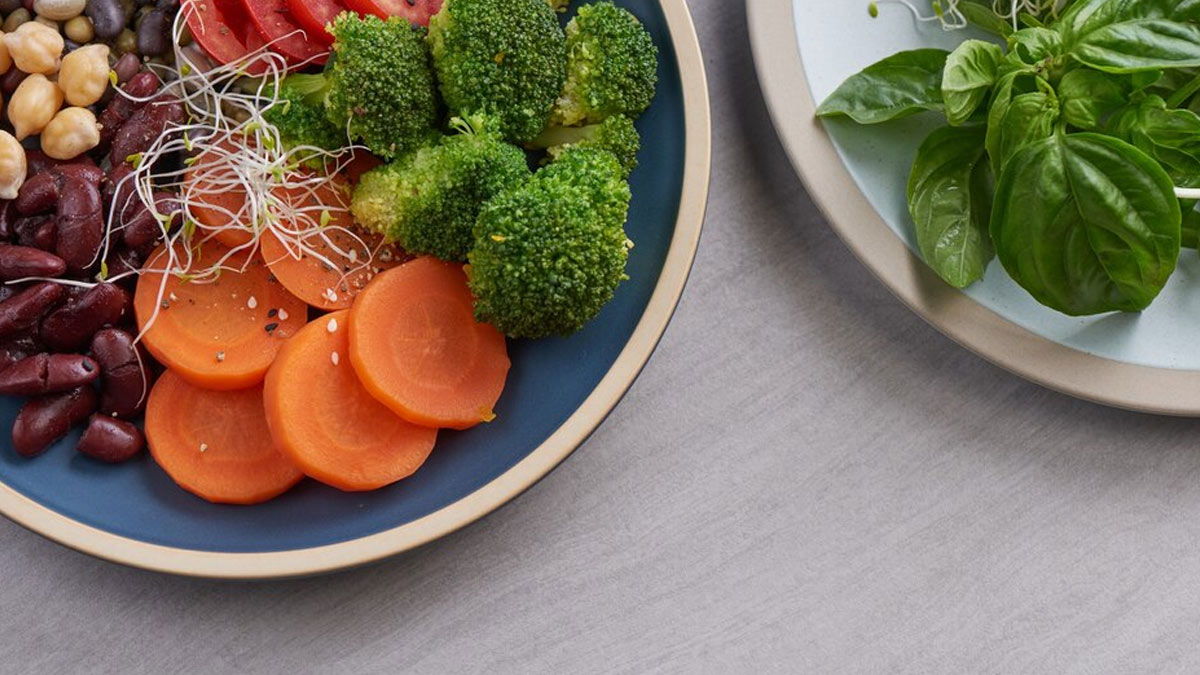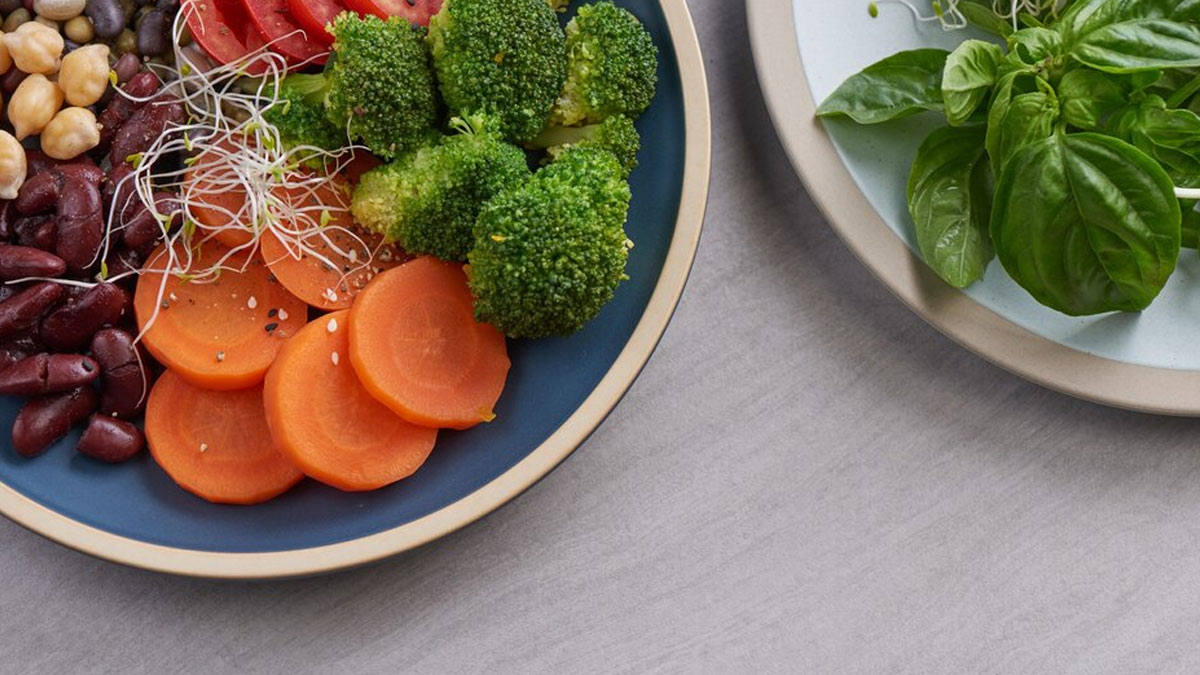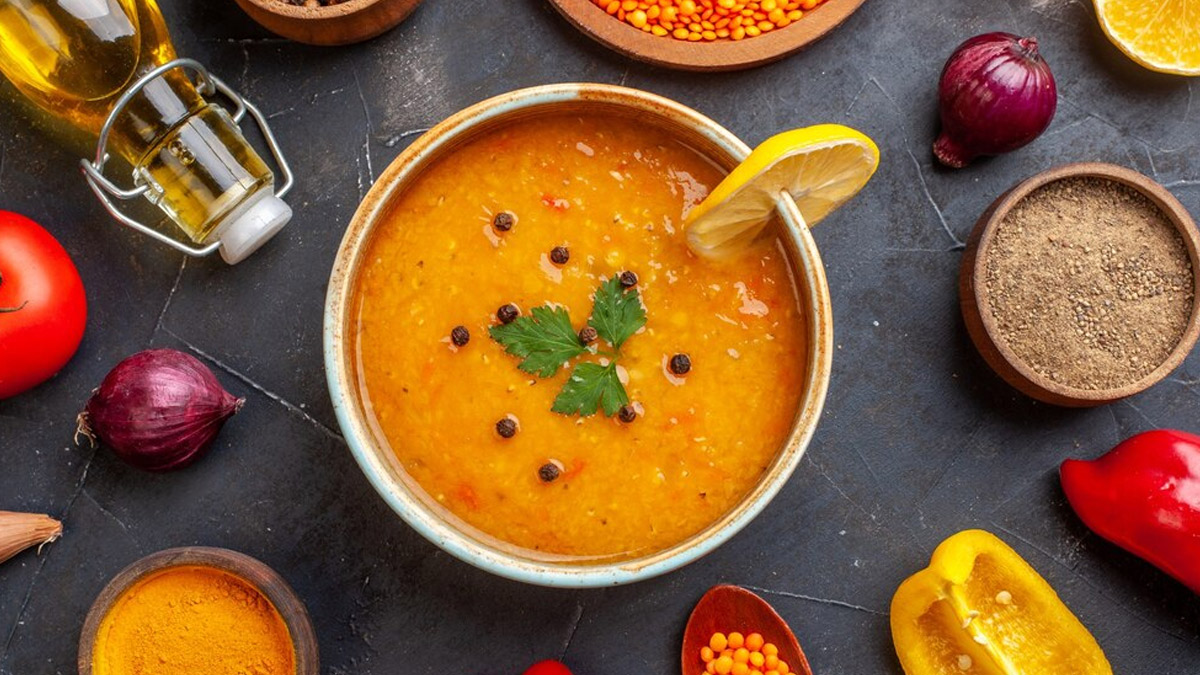
If you've recently taken antibiotics or been ill, you may have noticed changes in your digestion or overall well-being. These disruptions are often linked to an imbalance in the gut microbiome, the community of microorganisms in your digestive system. But there’s good news: what you eat can help restore that balance. A plant-based diet, rich in natural fibres, antioxidants, and probiotics, has been shown to promote gut health and rebuild microbial diversity. We spoke to our expert Dr Sowmya Bharani, PhD (UK), RD, Blue Tribe Foods, who shared insights on the same.
Table of Content:-

According to the Multidisciplinary Digital Publishing Institute (MDPI), plant-based or vegetarian diets primarily consist of foods derived from plant sources, while excluding some or all animal-based products, such as red meat, fish, poultry, eggs, and dairy.
Disruptions to the gut microbiome, often caused by antibiotics or infections, can lead to dysbiosis. It is a condition characterised by an imbalance of gut bacteria that is associated with various health issues. Here's how adopting a plant-based diet enhances microbial diversity and abundance, thereby promoting gut health.
How a Plant-Based Diet Restores Gut Balance After Antibiotics or Illness
Fibre

One of the primary mechanisms by which a plant-based diet supports gut microbiome restoration is its high fibre content. According to MDPI, adopting plant-based diets boosts beneficial gut bacteria, particularly from the phylum Bacteroidetes, which supports gut health and overall well-being.
Dietary fibres, predominantly found in fruits, vegetables, whole grains, and legumes, serve as prebiotics, substances that nourish beneficial gut bacteria.
“When these fibres are fermented by gut microbes, they produce Short-Chain Fatty Acids (SCFAs), such as butyrate, acetate, and propionate. SCFAs have been shown to strengthen the intestinal barrier, reduce inflammation, and improve metabolic health,” said Dr Bharani.
“Moreover, a systematic review indicated that individuals consuming plant-based diets exhibit a higher diversity of beneficial bacteria compared to those on omnivorous or high-fat diets. This diversity is essential for maintaining a resilient gut microbiome capable of withstanding disturbances,” she added Dr Bharani.
Also Read: Infection Prevention And Control: The First Line Of Defense Against Antimicrobial Resistance
Antioxidants and Phytochemicals
In addition to fibre, plant-based diets are rich in antioxidants and phytochemicals that contribute to overall gut health. These compounds help mitigate oxidative stress and inflammation, two factors that can exacerbate dysbiosis.
For instance, antioxidants found in fruits and vegetables can protect gut cells from damage and support the growth of beneficial microbes. “Furthermore, the anti-inflammatory properties of many plant foods may help restore balance in the microbiome by reducing the prevalence of pathogenic bacteria that thrive in inflammatory environments,” added Bharani.
Probiotics from Fermented Foods

“Transitioning to a plant-based diet also promotes the consumption of fermented foods rich in probiotics. These are live microorganisms that provide health benefits when ingested,” said Dr Bharani. Foods like kimchi, sauerkraut, and tempeh introduce beneficial bacteria directly into the gut, which enhances microbial diversity and functionality. Including these probiotic-rich foods can improve gut health by promoting a favourable microbial composition and boosting immune function.
Also Read: Ever Feel Your 'Gut Instinct'? Know How Your Microbiome Literally Shapes Your Mood
How to Transition to a Plant-Based Diet

- Start Small: There is no need to completely change your diet overnight. Begin by adding more plant-based meals to your week, such as a hearty vegetable stir-fry or a simple lentil soup.
- Focus on Diversity: Aim to include a wide variety of plant foods in your meals. The more diverse your diet, the more diverse your microbiome, which is a key factor in gut health.
- Add Fermented Foods: Add a serving of fermented foods like yoghurt alternatives, miso, or kombucha to your diet for an extra probiotic boost.
- Stay Hydrated: Adequate water intake helps fibre work its magic and keeps your digestive system running smoothly.
Benefits Beyond the Gut
A plant-based diet doesn’t just support your microbiome; it benefits your overall health. Improved digestion, reduced inflammation, enhanced immunity, and even better mental clarity are just a few perks of fueling your body with plant-powered goodness.
[Disclaimer: This article contains information provided by an expert and is for informational purposes only. Hence, we advise you to consult your professional if you are dealing with any health issues to avoid complications.]
Also watch this video
How we keep this article up to date:
We work with experts and keep a close eye on the latest in health and wellness. Whenever there is a new research or helpful information, we update our articles with accurate and useful advice.
Current Version
